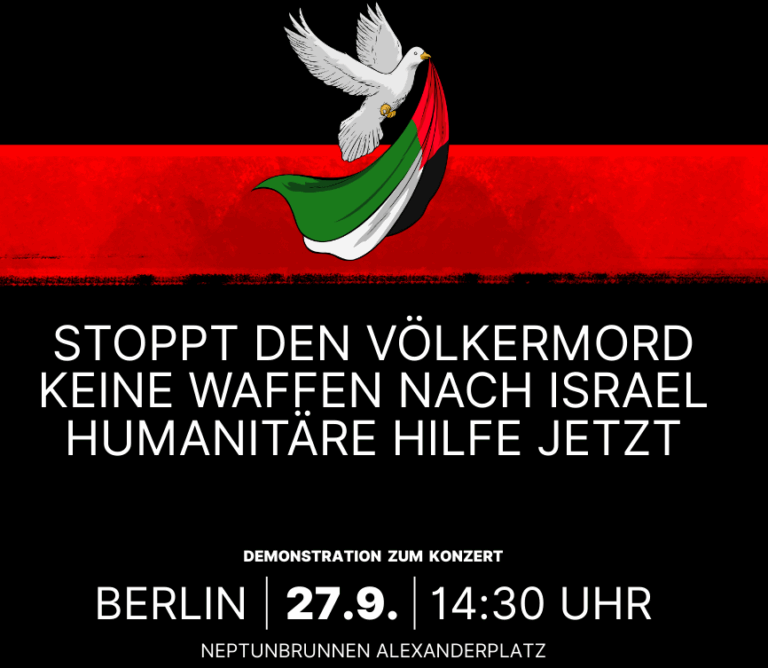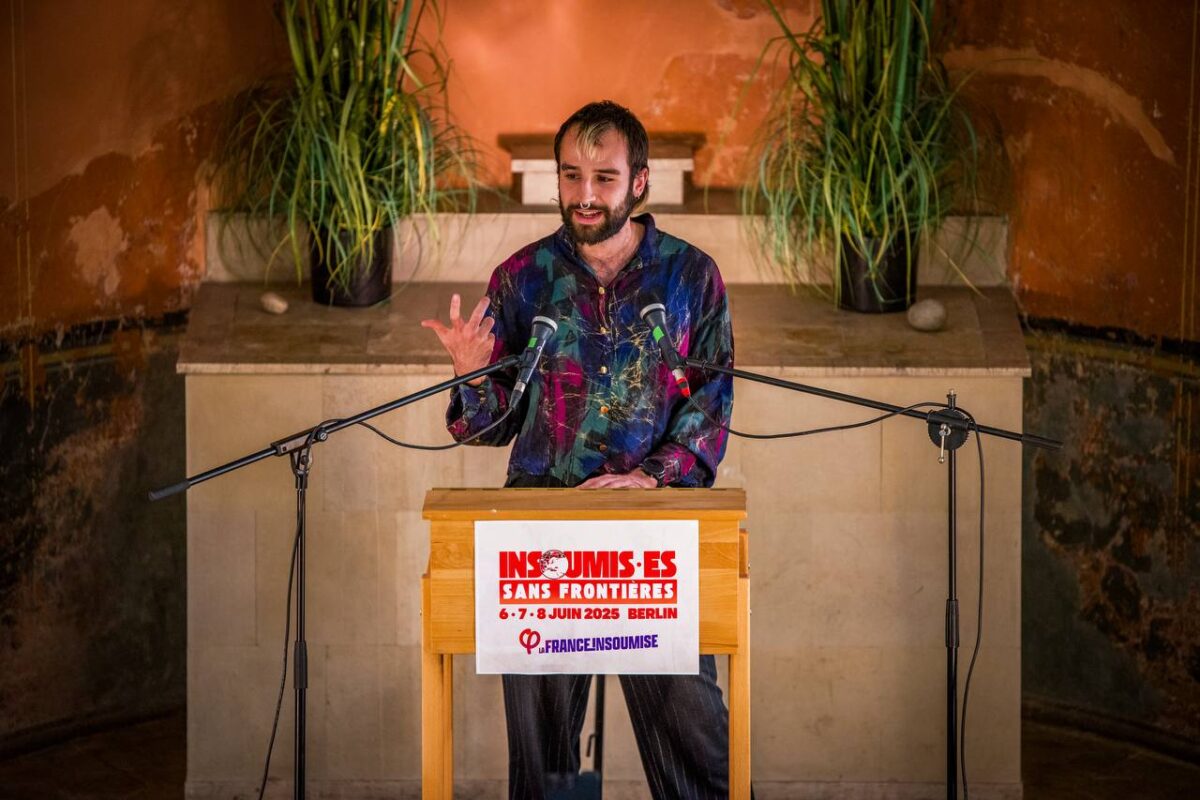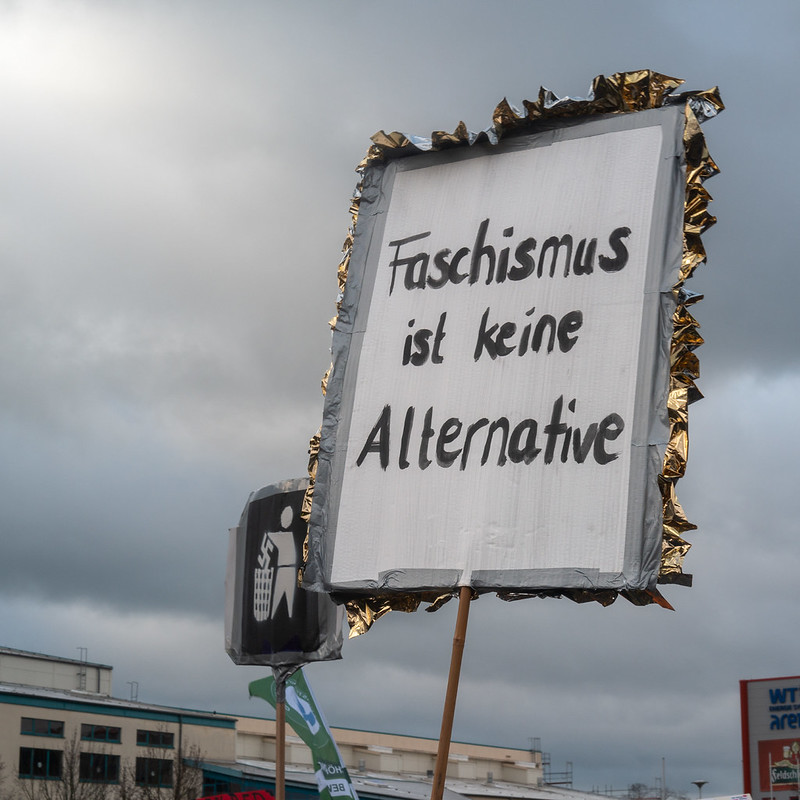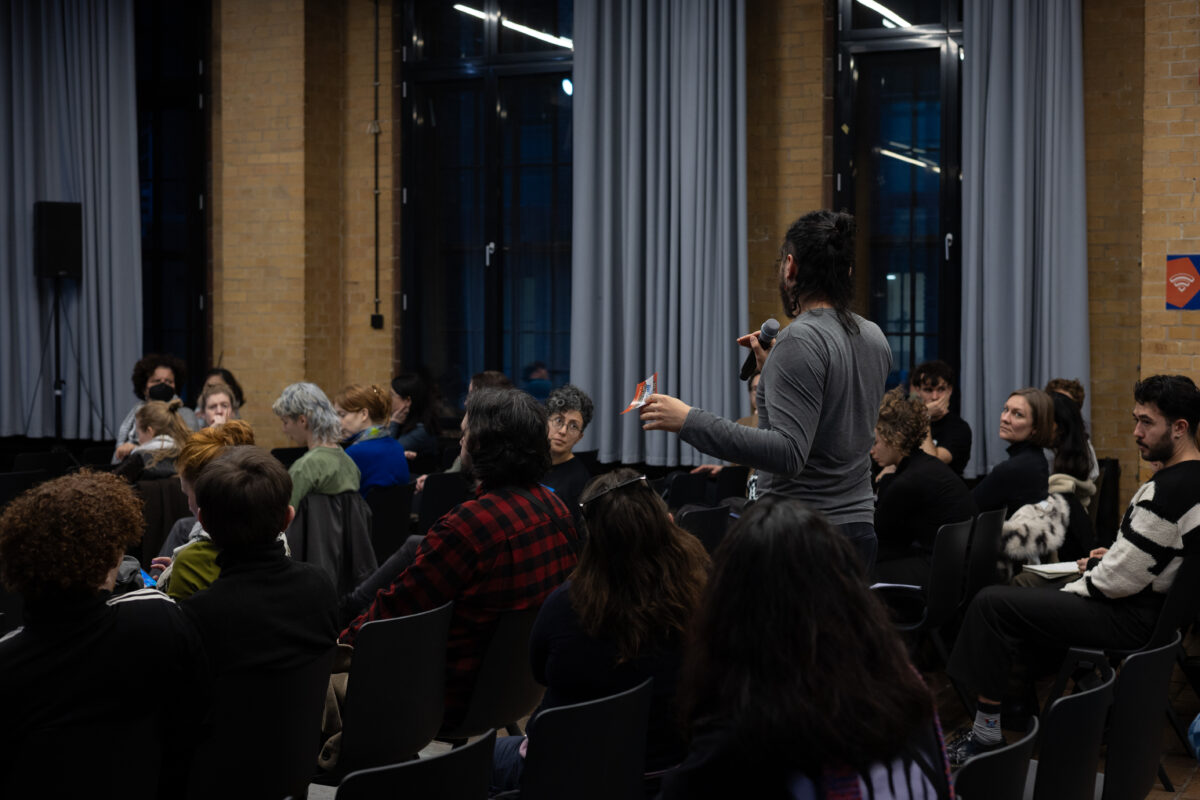The discourse on Gaza among the political and media elites of this country is finally beginning to shift. Increasing numbers of politicians and journalists are actually starting to use the word “genocide” and calling for an end to all arms shipments to Israel as well as sanctions of some kind. But it seems clear that we need pressure from below to ensure that this shift moves much more quickly and decisively to ensure real action. One of the best ways to do just that is by organizing mass demonstrations.
Berlin is home to the largest Palestinian community in any city outside the Arab world. At least an estimated 30,000 Palestinians live here, 200,000 in Germany as a whole. Yet it has been incredibly difficult to organize large demonstrations in this city, for several reasons.
The primary reason for this is the outrageous behavior of the police at virtually every single demonstration. Even before 2023, the Berlin police had been notorious for the exceptional brutality against Palestinian protests in particular, with full support of nearly the entire political and media establishment.
Attending a demonstration means risking arbitrary police violence and detainment or arrest, leading to criminal charges. Many Palestinians with an unsure status are understandably not able to risk this, because of the consequences that might have for themselves and their families. There have been several cases of deportations and jobs lost.
The level of violence actually seems to be increasing with each new demonstration: the case of Kitty O’Brien now gone viral is just one of many. This is all compounded by the arbitrary restrictions placed on these demonstrations, which are often stopped by the police up to the point of banning them entirely. But the major reason for the fact that the demonstrations in Berlin and Germany in general have been so tiny has been the failure to mobilize the wider community.
The largest demonstration to date was the United 4 Gaza demonstration in June organized by Abed Hassan and Amin Rjoob with the backing of the heart of the Palestinian movement in Berlin. An estimated 70,000 attended. Even the attendance at successful demonstrations like United 4 Gaza remains ridiculously low in comparison to the demonstrations in New York, London, Madrid, Sydney, or elsewhere around the world. Recently in The Hague, 100,000 people were on the streets demanding an end to the genocide: the equivalent here would be 500,000 people.
It is important to remember that Berlin has seen protests of that size before: Against the Iraq War in 2003, over 500,000 people marched on the streets of Berlin alone, the largest demonstration in the history of the Federal Republic. Considering the polls that suggest a large majority of Germans diverge starkly in their opinions from the genocidal line of the government, it is imperative to find a way to mobilize at least a significant number of them to achieve something comparable to the demonstrations of 2003.
A major contributing factor that has prevented a mass mobilization similar to that found in other countries was the egregious failure of all human rights groups and the Linke to get behind the demonstrations in the first place. In fact, the German branches of organizations like Fridays for Future and Amnesty International famously distanced themselves from the international organizations for condemning the genocide in Gaza.
This has been changing over the past year: much too late, and not with sufficient soul-searching that should accompany their change of stance. Other NGOs like medico international have, on the other hand, from the very start been supportive of the cause of stopping the genocide and advocating Palestinian liberation, although initially not on the streets.
Finally—and far too late—several NGOs, including Amnesty International and medico international, and several private individuals organized a rally in February 2025 (For a Just Peace in Palestine and Israel) in front of the Bundeskanzleramt. This was still couched in extremely “moderate” language under the slogan “Ceasefire now.” It was an incredibly frustrating event, organized with minimum Palestinian participation and conflicted with another major demonstration at the same time. The turnout was anything but what it should have been: perhaps rightfully so, since the wording was so drenched in relativizing both-sidesism.
But the situation now is very different. Some of the same individuals, NGOs (including Amnesty and medico), and most importantly the party the Linke have announced a demonstration “Zusammen für Gaza—Stoppt den Genozid” (Together for Gaza—Stop the Genocide). They have been joined by several Palestinian activists and politicians. The demonstration starts at Alexanderplatz on Saturday, September 27th, and leads to the Bundestag, where it will be followed by a rally/concert in the evening.
This time, the tenor is decidedly different. That the word genocide is mentioned at all is already an amazing step forward in the context of this country. The wording of the call to demonstrate has clearly been chosen very carefully to create the broadest possible coalition to exert the most pressure to end the German support for genocide in Gaza, certainly the most pressing issue for activists here at the moment. This is necessary when organizing a large demonstration.
But this time, some things are new. Ramsis Kilani, who is listed first among the list of “initial supporters” published on the protest’s website, eloquently points out in an Instagram reel, that there are many things to criticize here, but the demands also go farther than anything that we’ve seen from this spectrum up to now.
Of course, the core of the movement has demands that go much farther, down to the root of the problem, Zionist settler colonialism. But we should bring this criticism to the demonstration itself. It is precisely what we have been pushing on the streets and in social media that has led these organizations to change their position.
We need to continue that process: and we can do that most effectively by using this opportunity to show our dissent at the demonstration itself, and make the best possible use of the resources they have made available to turn this event into the largest demonstration for Palestine that Germany has ever seen. We are not only calling for a stop to the genocide and German support for it, but also to promote Palestinian liberation.
So while it is absolutely crucial to continue pushing NGOs, and most importantly the Linke, in the right direction, a boycott of this demonstration—or, worse, a counter demonstration—would only be destructive to the cause we are all fighting for.
Yes, it is incredibly frustrating. The Linke general secretary Janis Ehling recently gave a useless interview, ostensibly in support of the demonstration while undermining it at the same time. Attacks from within the party (like Bodo Ramelow’s insidious interview where he claims that saying that IDF kills kids is equivalent to the myth that “Jews eat children.” More than anything, this interview exposes Ramelow’s own antisemitism). The list goes on.
The failures of some people supporting the demo has made it very difficult to write this article at all. But if we are to have any hope that the movement to stop this genocide will grow and become more effective in this country, it is vital to seize this opportunity and make the demonstration ours. Please go to the website https://www.zusammen-fuer-gaza.de and sign up as a supporter, and of course please attend if you can.




